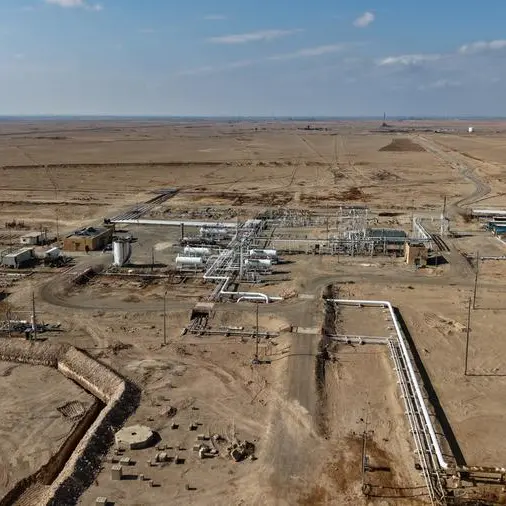Hospitals and medical equipment that could help to treat patients with chronic diseases are markets that are set for robust growth in the Gulf Cooperation Council (GCC) over the coming years, officials involved in health sector projects have said.
Capital Health, the Abu Dhabi-based private healthcare group, that was established in November, plans this year to start operations in its new specialised rehabilitation hospital in Abu Dhabi, the group’s head of marketing and communications Dedef Kayrouz told Zawya in an interview on Monday on the sidelines of Dubai’s Arab Health congress and exhibition.
The new hospital will offer long term treatments to patients suffering from chronic illnesses, which include diabetes and some heart and respiratory illnesses.
Kayrouz said the high rate of chronic diseases in the GCC region was the reason that led to the establishment of the new medical facility, which she said would be the first of its kind in the entire GCC region.
“The percentage (of chronic illnesses) in the (GCC) region is huge,” Kayrouz said.
Kayrouz said that she sees a big market opportunity in the rehabilitation sector in the GCC in the coming years. “I think…over 70 percent of all rehabilitation patients (in the UAE) have to travel abroad to get the treatment,” Kayrouz said, adding that Capital Health plans expansions to other GCC markets in the next few years, including Saudi Arabia.
A report published by Deloitte in 2014 on the outlook for the global health care market said GCC residents above the age of 45 are at a high risk of developing chronic diseases.
“Managing chronic lifestyle diseases requires an integrated healthcare approach, and GCC governments must continue their progress in leveraging leading global medical solutions to the unique needs of their residents," Deloitte’s press release on the report said, quoting Khalid Amin, the regional director of Spain-based Cinfa - a pharmaceutical company that launched in the UAE in 2013.
The CEO of Philips for the Middle East and Turkey region Ozlem Duzen Fidanci said the increase in rates of chronic diseases in the GCC will encourage several tech and health companies to invest in the region. She said her company strongly believes that the opportunities in the overall health care sector in the Middle East are “immense”.
“(There are) very big opportunities, simply because healthcare is a priority for the governments, in the GCC, as well as for the rest of the region,” Fidanci told Zawya on the sidelines of the Arab Health event in Dubai.
Fidanci added that the healthcare sector is still in the making in most of the Middle East’s countries that Philips covers, which includes Lebanon, Syria, Jordan, the six GCC countries, Iraq and Pakistan, but does not include Egypt and other North African states.
Most GCC governments, including Saudi Arabia, have stressed the importance of the healthcare sector in development plans for their economies, which involve the diversification of revenue streams, moving away from a dependence on oil revenues.
The kingdom’s 2018 financial budget showed that 147 billion riyals ($39.2 billion) will be allocated to health services and social development projects, of which 33 billion riyals will be for projects connected to Saudi 2030’s vision, according to a copy of the state’s budget published on the Ministry of Finance’s website. The Saudi 2030 vision is an economic transformation plan announced by the kingdom in 2016.
Further reading:
(Reporting by Yasmine Saleh; Editing by Michael Fahy)
(yasmine.saleh@thomsonreuters.com)
Our Standards: The Thomson Reuters Trust Principles
Disclaimer: This article is provided for informational purposes only. The content does not provide tax, legal or investment advice or opinion regarding the suitability, value or profitability of any particular security, portfolio or investment strategy. Read our full disclaimer policy here.
© ZAWYA 2018
Capital Health, the Abu Dhabi-based private healthcare group, that was established in November, plans this year to start operations in its new specialised rehabilitation hospital in Abu Dhabi, the group’s head of marketing and communications Dedef Kayrouz told Zawya in an interview on Monday on the sidelines of Dubai’s Arab Health congress and exhibition.
The new hospital will offer long term treatments to patients suffering from chronic illnesses, which include diabetes and some heart and respiratory illnesses.
Kayrouz said the high rate of chronic diseases in the GCC region was the reason that led to the establishment of the new medical facility, which she said would be the first of its kind in the entire GCC region.
“The percentage (of chronic illnesses) in the (GCC) region is huge,” Kayrouz said.
Kayrouz said that she sees a big market opportunity in the rehabilitation sector in the GCC in the coming years. “I think…over 70 percent of all rehabilitation patients (in the UAE) have to travel abroad to get the treatment,” Kayrouz said, adding that Capital Health plans expansions to other GCC markets in the next few years, including Saudi Arabia.
A report published by Deloitte in 2014 on the outlook for the global health care market said GCC residents above the age of 45 are at a high risk of developing chronic diseases.
“Managing chronic lifestyle diseases requires an integrated healthcare approach, and GCC governments must continue their progress in leveraging leading global medical solutions to the unique needs of their residents," Deloitte’s press release on the report said, quoting Khalid Amin, the regional director of Spain-based Cinfa - a pharmaceutical company that launched in the UAE in 2013.
The CEO of Philips for the Middle East and Turkey region Ozlem Duzen Fidanci said the increase in rates of chronic diseases in the GCC will encourage several tech and health companies to invest in the region. She said her company strongly believes that the opportunities in the overall health care sector in the Middle East are “immense”.
“(There are) very big opportunities, simply because healthcare is a priority for the governments, in the GCC, as well as for the rest of the region,” Fidanci told Zawya on the sidelines of the Arab Health event in Dubai.
Fidanci added that the healthcare sector is still in the making in most of the Middle East’s countries that Philips covers, which includes Lebanon, Syria, Jordan, the six GCC countries, Iraq and Pakistan, but does not include Egypt and other North African states.
Most GCC governments, including Saudi Arabia, have stressed the importance of the healthcare sector in development plans for their economies, which involve the diversification of revenue streams, moving away from a dependence on oil revenues.
The kingdom’s 2018 financial budget showed that 147 billion riyals ($39.2 billion) will be allocated to health services and social development projects, of which 33 billion riyals will be for projects connected to Saudi 2030’s vision, according to a copy of the state’s budget published on the Ministry of Finance’s website. The Saudi 2030 vision is an economic transformation plan announced by the kingdom in 2016.
Further reading:
- GCC healthcare projects value tops $61bln: report
- Technology transforming healthcare: NMC CEO
- Taking the pulse of GCC healthcare sector
- GCC patients call for better experience from healthcare providers
(Reporting by Yasmine Saleh; Editing by Michael Fahy)
(yasmine.saleh@thomsonreuters.com)
Our Standards: The Thomson Reuters Trust Principles
Disclaimer: This article is provided for informational purposes only. The content does not provide tax, legal or investment advice or opinion regarding the suitability, value or profitability of any particular security, portfolio or investment strategy. Read our full disclaimer policy here.
© ZAWYA 2018




















